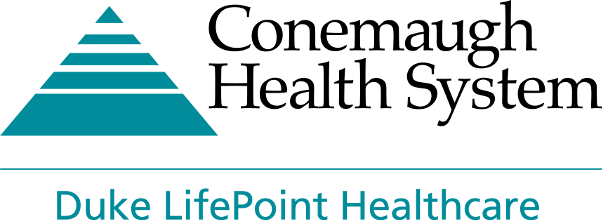Curriculum
Conemaugh Health System's Psychology Internship Program is designed to prepare students for the practice of professional psychology consistent with the philosophy embodied in the practitioner-scholar model of training. The overarching goals for the internship are to assess, refine and extend knowledge, skills and attitudes in the following areas of professional psychology, such that the intern will have developed a proficient to advanced level of competence in the following areas:
-
-
- Competence in philosophy and practice of Integrated Care
- Competence in Relationship and Individual and Cultural Diversity
- Competence in Psychological Assessment
- Competence in Therapeutic Intervention
- Competence in Consultation and Interdisciplinary Health Care
- Application of Scientific Knowledge and Supervision to Clinical Work
- Competence in Professional Conduct, Ethics, and Legal Matters
- Competence in the area of Behavioral Medicine Technique and Application
-
Our faculty aim to train future professional clinical psychologists to meet the individual and collective mental health needs of all persons, with attention to diversity of gender, race, ethnicity, social class, sexual orientation, religion, age, and abilities using comprehensive, empirically-supported cognitive and behavioral interventions, in collaboration with primary care physicians and other health professionals in an effort to provide holistic interdisciplinary health care services. We seek to train culturally competent clinical psychologists who will be leaders, advocates, clinicians, educators, and supervisors, with a commitment to scholarship and the application of research methodologies to answer clinical questions in their daily practices and communities.
Developmental and Sequential Learning
The internship training program at Conemaugh Memorial Medical Center is developmentally planned and sequentially organized. Interns begin the year with orientation which is aimed at helping them to transition into the Department of Psychology in the Family Medicine practice at Conemaugh Memorial Medical Center and the Department of Behavioral Medicine, to become part of the professional staff and to begin assuming the role of Intern. The internship program operates under the assumption that most interns will have had relatively little experience in the provision of services within a medical system and/or primary care setting. Consequently, the training program begins with an orientation to the scope of psychologist-physician collaboration, the culture of the psychiatric consultative liaison, and issues related to serving culturally-diverse populations, and policies and procedures related to the referral, triage and case assignment process.
Modalities
-
-
- Orientation: general introduction to all areas of functioning included in the internship and provide background conceptual and/or didactic frameworks.
- Didactic seminar sessions: provide more in depth explorations of various topics or encourage interns to contemplate their experiences thus far in the area in order to integrate their didactic and/or scientific knowledge with their provision of the service.
- Participation in case conferences: includes a discussion of multicultural and ethical considerations.
- Observation of supervisors and seasoned professionals: performing clinical services providing the opportunity to become familiar with the competencies required to provide the service and the procedures utilized by the agency in performing the service.
- Providing the service: in conjunction with a staff or clinical supervisor, being observed by a supervisor, or with consultation from a staff or supervisor.
- Develop competency: participate in training activities including discussions and review of video recordings of their sessions in supervision; discussions and case presentations in didactic seminars; and interaction and discussion with other interns.
- Evaluation and formative feedback from supervisors and training committee to interns to encourage their development, identify areas needing extra attention and provide remediation, as necessary.
-
Clinical Rotations
-
-
- Conemaugh Family Medicine Center: brief, evidence-based treatment utilizing an integrated primary care psychology model, as well as consultation-liaison services at Conemaugh's outpatient medical care clinic. About half of the schedule throughout the year is scheduled at the Family Medical Center (FMC). Interns are assigned as members of the interdisciplinary primary care team with physicians, residents, and other allied health professionals. The outpatient family medicine clinic serves a diverse population, including the rural underserved communities that surround Johnstown.
- Inpatient Behavioral Medicine: Clinical psychology services are delivered on Conemaugh's inpatient adult and child unit. Interns have the option to serve an assignment involving consultation services on the two psychiatric inpatient units at the main campus of the hospital.
- Conemaugh Counseling Associates (CCA): CCA delivers outpatient psychological assessment and testing for children, adolescent, and adults at Conemaugh Medical Center's Lee Campus, including: ADOS-2, Continuous Performance Tests (CPT), and semi-structured clinical interviews. Interns will have the opportunity to complete psychological assessments under the supervision of the Chief Psychologist.
- Conemaugh Diabetes Institute (CDI): CDI specializes in chronic illness management utilizing behavioral activation and motivational interviewing models. This rotation allows interns to practice alongside dietitians, diabetes educators, and nurses engaged in the ongoing treatment and prevention of diabetes. Interns provide acute services for newly diagnosed patients in the inpatient setting as well as individual behavioral modification targeting adaptive behaviors for diabetes management.
- Bariatric & Weight Loss Program: an outpatient care clinic specializing in pre-surgical evaluations, including structured clinical interviews (BIBS), and MMPI-III, as well behavioral health follow-up prior to the authorization of surgery.
- The Ryan White Clinic: A program through the Family Medical Center which provides comprehensive healthcare for people infected with HIV/AIDS. Interns conduct biopsychosocial assessments and cognitive screenings as well as individual therapy.
- Outpatient Cardiac Rehabilitation: Interns lead a cardiac rehabilitations support group emphasizing the empirically supported supported role that stress reduction plays in cardiac care.
- FMC Resident Supervision: Residents within the Family Medicine Residency Program engage in a five-week behavioral medicine rotation during their second year. Fulfillment of this requirement is met through the Department of Psychology. Each intern completes six months of supervision these medical residents.
- Neuroscience and Chronic Pain: outpatient neuroscience specialty clinic populations and chronic pain interventions
-
